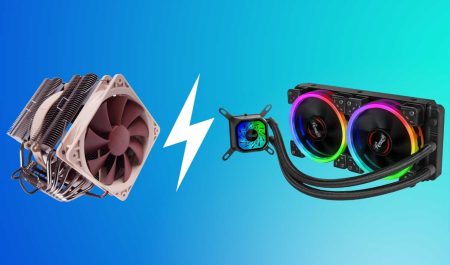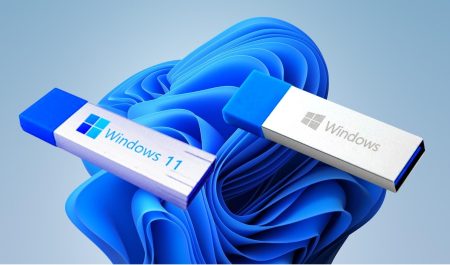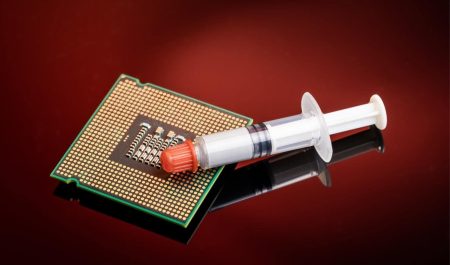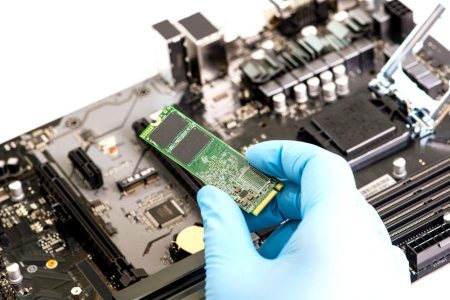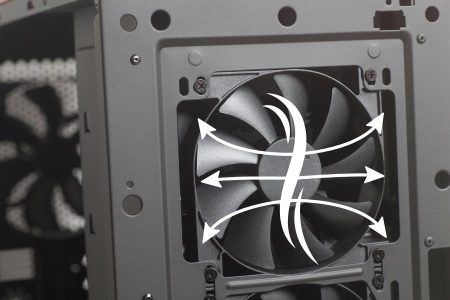When you replace your sluggish HDD with an M.2 SSD improve FPS and gaming performance. In fact, using an SSD (solid state drive) for gaming can result in faster load times and a better gaming experience. But there are many additional factors that work together to improve system speed and enhance FPS in games and an SSD upgrade is one of them. Furthermore, we will discover if SSDs are worthwhile, and conclude, how much improvement this makes and how much FPS is raised.
Does an SSD Improve FPS: SSD on Gaming
An SSD can improve FPS in gaming, but the extent of that improvement depends on the game, and most importantly how efficient is other hardware, and how you use your computer. Generally speaking, an SSD can provide a modest FPS increase in games. If you are using a traditional hard drive, upgrading to an SSD will give you the biggest performance boost.
If you currently have an SSD, despite the different types (PCIe Gen, NVMe Gen), the benefits will be less noticeable. There are several factors that influence total FPS in video games. The read/write speeds of an SSD decide how big of an influence it will have on your gaming experience. And when you have the same quality gear such as a faster GPU, RAM, CPU, monitor, and, most crucially, an upgraded motherboard, it will ultimately improve your overall performance based on your good gaming PC configurations, allowing you to achieve your gaming goals.
Depending on the circumstance, you may be constructing a new gaming machine or updating your PC with a determination to reach higher performance, or improving your specs to make a decent gaming PC that delivers a better gaming experience with little more money on a top SSD to lead gaming FPS to an edge.
Such improvements will affect overall PC performance since every component is connected; running games from an SSD will undoubtedly improve loading times with faster speeds allowing other hardware to reveal its true potential, and high refresh rate gaming will reduce stuttering.
Facts show Faster SSDs Unlocks your Gaming Performance to increase FPS
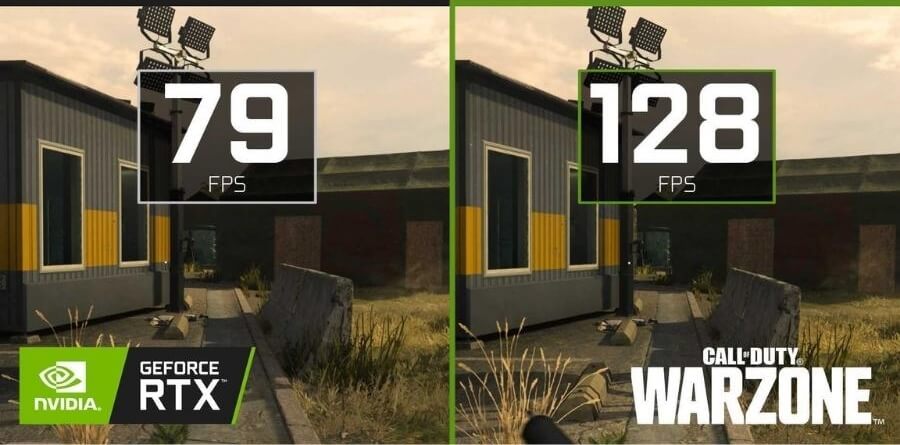
Modern games like COD Warzone (Battle Royal) require higher graphics and more and faster storage capacity, which necessitates faster read and write speeds SSD, which truly impact the performance and frame rate of games.
An average game requires a read and write speed of 40 to 60 Mbps, with some games requiring up to 120 Mbps to take advantage of your storage performance to reduce to much lower load times. This factor is completely worth how fast your SSD drive is and its ability to magnitude lower latency, in which PCIe, M.2, and NVMe demonstrated a reasonable upgrade to lower load times.
Frame per second (FPS) depends on the genre of the game and your hardware to increase the frame rate. When your capable system is combined with the strength of your SSD and a faster response time, you will notice a 1 FPS average increase in some titles while other games manage moreover. However, when you don’t have enough RAM capacity, your disc capabilities will work as memory too; which causes low frames.
The use of a fast SSD is going to boost the overall hardware strength of your PC; if you have a decent system with at least a 6-core CPU, 16GB of RAM or more, and a dedicated GPU with at least 6GB VRAM, you will benefit from increased overall system performance. It is because an SSD will not only be faster at booting and loading games, but it will also perform better in other areas, such as transferring large files.
The reason for this is that SSDs do one thing: they store data, and they do it much faster with faster read and write time data speeds, which I’ve noticed are faster than HDD read/write speeds.
When playing open worlds games, HDDs provide the same frame rate as an SSD, but when your character starts moving or doing an action, the frame rate drops because HDDs cannot meet the games’ requirements of at least 120Mbps read and write constantly.
Whereas an SSD can work work with all genre games including action and battle royal games and deliver the highest frame rate that your hardware can provide, which is why FPS performance increased with a faster SSD.
Benchmarks of Fast SSD Drive Increase Game FPS (Warzone)
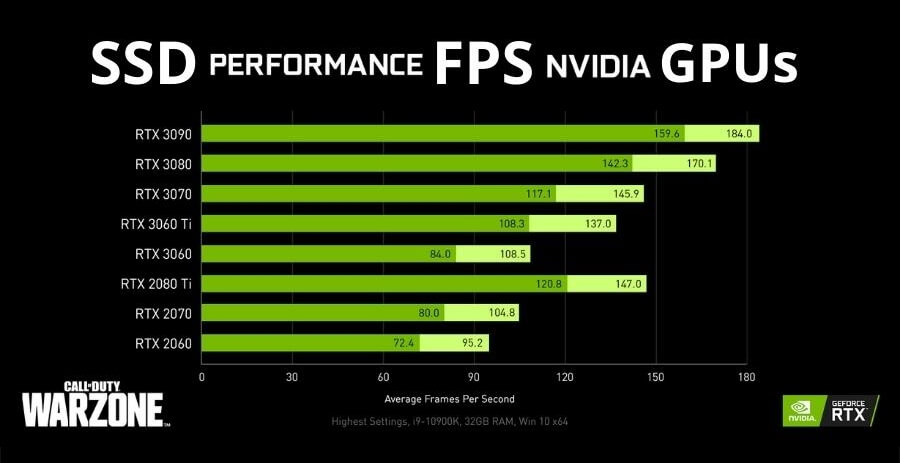
With a slow disc (HDD), some open-world games may show a stable frame rate until you start moving around and doing something, resulting in slow read and write speeds. And HDD can only play open games, not any other area appropriate for a hard disc drive. They simply lack FPS and consequently slow down system performance.
The stable FPS rate occurs due to assets streaming in and out of memory (RAM) as your character is not moving or doing anything intense. While, as you navigate the world, this data shifts to the storage drive for real-time data read and writing in bulk, as RAM has limits. These game assets must be read from storage in order to free up RAM for other tasks.
“Low RAM and sow HDD, on the other hand, almost lie down to the same extent.”
In comparison, if you have an SSD with data reading and writing speeds of at least 200 Mbps, the results will be significantly different. Your games will not stutter when you play, implying smooth performance with higher frame rates as indicated by the Benchmarks picture above. (Warzone). When you have a faster SSD with the required RAM in your system, your GPU can do its job better and not fall behind to lose FPS as an HDD does.
I ran some game tests with different GPUs to see how much overall hardware benefits from having a faster NVMe SSD installed for games-only storage. The included GPUs have demonstrated varying strengths in terms of pulling rendering at maximum speeds. The benchmark chart (image) shows a significant change in FPS rate from the lowest to highest of your system capacities, ranging from the RTX 2060 (6GB VRAM) graphics card to the most powerful gaming GPU (RTX 3090).
With these results (attachment image above), I can confidently state that faster SSDs have an effect on your game, whether you play open world or PVP games. In general, a fast SSD will reduce loads to the point where they are imperceptible, as their random read and write benefits during gameplay. And all of this occurs in collaboration with your capable hardware, which may improve or decrease FPS with hitching.
HDD Vs SSD Games Launch Time (STATA SSD Vs SATA HDD): Impact on Gaming Performance
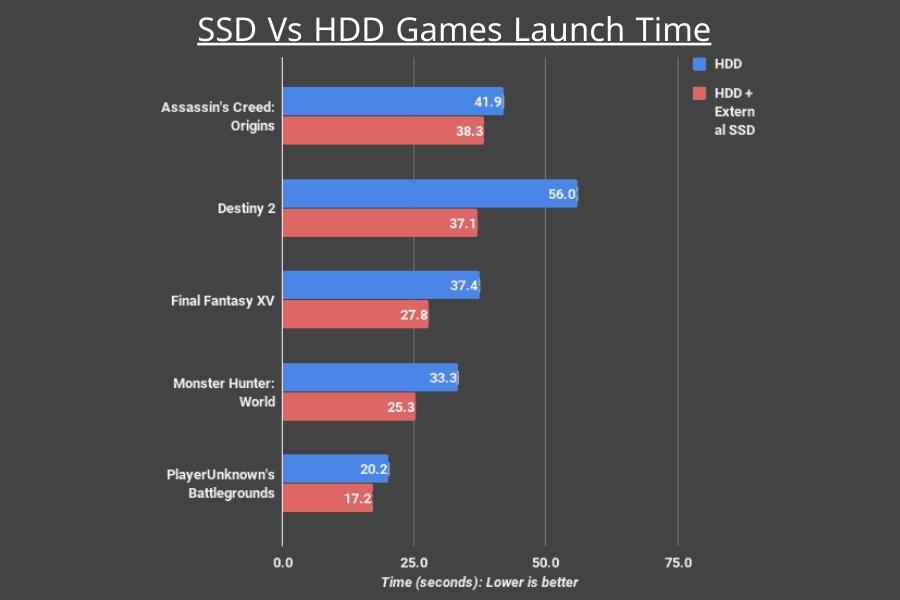
One of the most important aspects of a gaming PC is its performance. You want to make sure that you can get the best gaming experience possible, and that often means investing in a good processor, graphics card, and RAM. But what about your storage? If you’re using an SSD, does that mean you’re getting a good gaming experience?
The answer is that an SSD will undoubtedly improve your gaming experience by providing lightning-fast loading speeds. We have seen massive improvements with the installation of a SATA SSD (Crucial MX500 2.5 inches SSD) in a gaming laptop over an upgrade from a 7200 RPM HDD, and what it has done is simply unlocked the hardware to keep up with games with faster launch times. If you play games and mind long launch times, it’s worth investing in an SSD with speedy read and writes properties.
In the preceding benchmark, I compared various games to demonstrate what an SSD can achieve over an HDD. The results are astounding to witness faster SSD launch times, which an HDD could not compete with. Other than a faster launch time, the best SSDs have the speed for loading data faster, transferring and moving data, and installing new games with ease.
SSD VS HDD OS Boot Time Comparisons
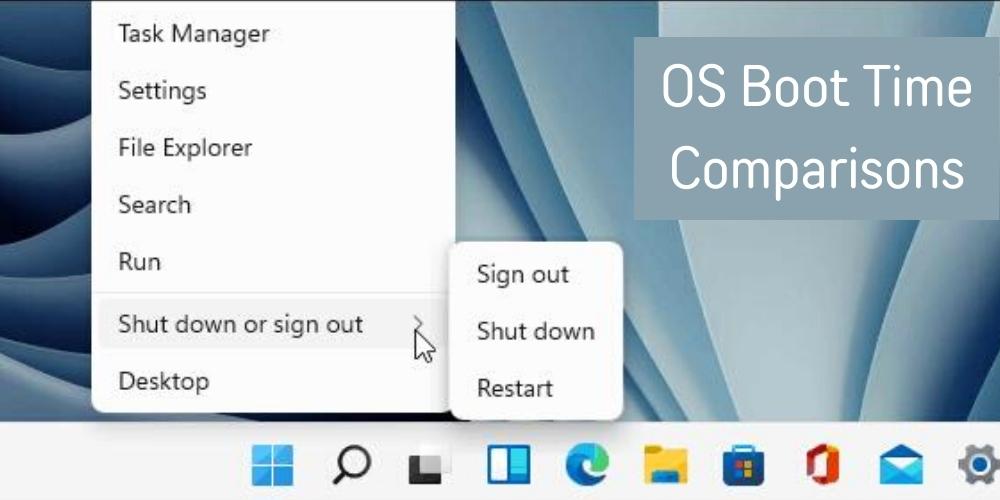
A typical Windows PC with an HDD takes at least 35 seconds to fully load the login screen, whereas the M,2 SSD boots in 3-5 seconds. It is remarkable for saving time because Windows continues to grind on storage to load animations and features after boot, which takes at least 2 minutes.
In comparison, an SSD will require more to simply keep the system raid fast with each action you perform, especially if you have a faster processor and RAM to share. Here I’ve done the various SSD and HDD boot time speed tests on Windows 11 OS:
5200 RPM HDD OS Boot Time
With an old 5200 RPM HDD, the boot time varies between 45 and 60 seconds, and when Windows receives a new update, it can take up to 2 minutes or more.
7200 RPM HDD OS Boot Time
The boot time improved from 30 seconds to 35 seconds with the slightly upgraded HDD speed of 7200 RPM, which is an improvement over the basic 5200 RPM for running Windows 11.
10,000 RPM HDD OS Boot Time
The faster the RPM, the quicker your computer will start up. This is true for the 10,000 RPM Western Digital Velociraptor HDD as it boots up Windows 11 in under 15 seconds.
SATA SSD (Crucial MX500 Gen 3) OS Boot Time
We discovered that the reliable SATA SSD boot time, which supports the latest SATA 3 interface, has reached a boot time of 5 to 10 seconds.
M.2 SSD (Seagate Firecuda 530) OS Boot Time:
With the latest PCIe Gen 4.0 M.2 high-class SSD Seagate Firecuda 530, it takes 3 to 4 seconds. for boot time, which is faster than our previous encounters.
NVMe SSD (Sabrent Rocket 4 Plus) OS Boot Time:
For our final comparison test, we boot up the Sabrent Rocket 4 Plus, an NVMe 4.0 Interface SSD that boots (Windows 11) in 2 to 3 seconds.
Conclusion of OS Boot Time Speed Results
It turns out that installing a faster SSD for Windows 11 OS reduces boot time to a bare minimum. However, it is also the operating system that requires optimizations because when you have a heavy application for Startups (initial load time), it will increase the boot time because the system needs to load additional programs as well.
Now for the test results: Our winner for faster boot time is Sabrent Rocket 4 Plus, an NVMe-based M.2 SSD, which emerged as the winner among different kinds of storage. It has got two factors that contribute to its significantly faster boot time. First, the NVMe 4.0 Interface is intended for faster NVMe SSDs than NVMe 3.0. Second, the Sabrent Rocket 4 Plus is a high-quality storage device that is also somewhat pricey. However, in configs, NVMe SSD is better than SATA SSD.
Affect of Faster SSD on Gaming
SSDs (solid state drives) are becoming more popular in the gaming community. Many gamers are making the switch from traditional spinning hard drives to SSDs for faster game load times and overall better performance. It is not just any SSD that is efficient and fast; we have witnessed switching to NVMe M.2 SSDs result in faster performance as well as PCIe Gen 4.0 to stay ahead of the storage game, but can SSD Improve FPS In games?
Can SSD improve FPS in Games? How Much
There are two main factors that affect how a fast SSD impacts gaming: game load times and frame rates (FPS). A faster SSD will dramatically reduce game load times, which means you’ll spend less time waiting for games to start and more time actually playing them. This improved performance can also lead to increased frame rates from 1 to 2 frames, resulting in a smoother, more immersive gaming experience.
It is because SSD storage increases the speed with which your computer can read and write data much faster. And because modern games generate a lot of data, the read speed is the most important performance metric. Some games, on the other hand, focus on memory (RAM), rather than storage once all files are loaded, they spare storage for levels and videos between cut scenes.
This is because your gaming PC’s RAM is much faster memory than a faster solid-state drive, which is why RAM matters for gaming to improve performance, especially if you run on integrated graphics, where it is recommended to increase memory capacity to play at a smooth frame rate without experiencing lag or shutter.
Modern Games and SSD Capacity
When it comes to storage, the first thing that comes to mind is capacity, or how much data it can store. In capacity, SSDs are more premium than HDDs and cost extra to maintain the same write and read speeds. Whereas HDDs with large capacities slow down over time, SSDs maintain constant sequential and random read and write speeds, which benefits long-term gaming.
In terms of capacity, modern PC games require a lot of storage space. We have seen game size has increased in recent years, and this increased size has an impact on the storage drives you have, which makes short capacities incompatible. This is why gamers need more high-capacity solid-state drives to play the latest games.
Why are Game Sizes Increasing with Massive Install Sizes?

The reasons are high-resolution assets from new games that require more storage, such as 4K and 8K textures, which require not only GPUs to render but also storage drives to take loads of data, which consumes more than usual. It is even with image compression algorithms set by developers to reduce the actual size of games, and some titles show a significant increase in overall size.
The following games have a high storage count and demand high storage SSDs:
- Call of Duty Modern Warfare: More than 200 GB of space
- Red Dead Redemption 2: More than 150 GB
- Final Fantasy XV: More than 150 GB
- Microsoft Flight Simulator: Over 127 GB
- Halo The Master Chief Collection: 126 GB
- ARK Survival Evolved: More than 112 GB
- Elder Scrolls Online: Over 100 GB
- Forza Horizon 5: Over 100 GB
Benefits of Gaming with an SSD
There are many benefits to gaming with an SSD, we conclude simpler:
- One of the most important benefits is that games load faster on an SSD. This is because an SSD reads and writes data at a much faster rate than a traditional hard drive. This means that you can get into the action faster and spend more time gaming.
- Another benefit of gaming with an SSD is that it can improve your game performance. This is because the data stored on an SSD is accessed more quickly than data stored on a traditional hard drive. As a result, your computer will be able to render game graphics more quickly, giving you a smoother gaming experience.
- Additionally, gaming with an SSD can help to reduce stuttering and lag. This is because stuttering and lag often occur when your computer is trying to access data from the hard drive.


